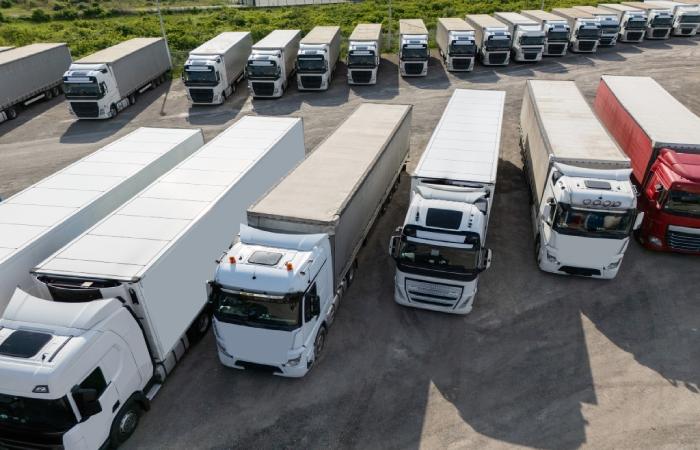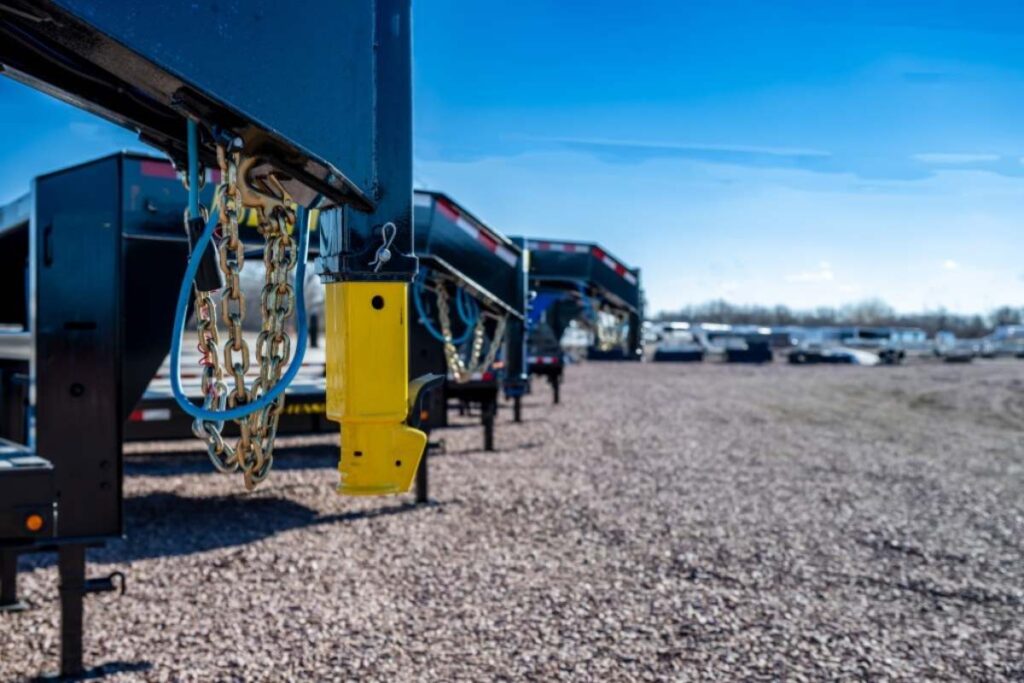Modern operations run on adaptability. Fixed facilities can’t always keep up with shifting work sites, seasonal demand, or quick deployment needs. A business trailer improves mobility and helps teams work more efficiently. The following examples show how it boosts efficiency and keeps operations running smoothly.
Table of Contents
1. Flexible Mobile Operations
A business trailer creates instant mobility. It can move where the work happens instead of forcing teams to return to base for resources. That flexibility reduces idle time and keeps projects moving.
Business trailers offer strong towing stability for safely moving tools, equipment, and workstations. The setup keeps vital tools nearby and supports efficient, on-site productivity without permanent buildings. For service-based businesses, mobile positioning also improves customer reach. Crews can shift locations faster, reducing downtime and reaching more customers in less time.
A concession trailer or food truck can function similarly, bringing products or services directly to clients. This flexibility keeps small operations competitive in crowded markets while complying with safety regulations that govern mobile food and retail setups.
Reputable trailer providers offer reliable options for businesses needing durable mobility. For instance, a high-quality gooseneck trailer can efficiently handle light or mid-sized loads. Built with channel iron or I-beam frames, it provides long service life for teams that move equipment or materials between sites.
2. Smarter Storage and Inventory Control
Disorganized storage wastes time. Add shelving, bins, and locks to a trailer to keep storage organized and efficient. Instead of managing one large warehouse, companies can keep inventory close to work zones for faster access.
A business trailer can double as a mobile storage hub with integrated inventory tracking. RFID scanners or barcode systems can record withdrawals and alert staff when supplies run low. Having materials near the field reduces travel costs and keeps restocking efficient.
Some companies use fleet management and GPS tracking systems to monitor trailers and improve accountability. Routine inspections and insurance coverage protect assets while keeping operations compliant and dependable.
3. Rapid Deployment for Temporary Projects
Seasonal work, short-term events, or off-site contracts often need fast setup. A trailer can serve as an instant operations base, already stocked with gear and ready to go. This setup eliminates long prep times and prevents delays.
Creative industries use modified trailers as mobile studios or editing suites. Engineers use them as testing stations near production lines. Business trailers offer ample space and balance for modular tools or specialized gear.
Companies in event production also depend on commercial trailers for trade shows and exhibits. A compact mini trailer or mobile vending trailer improves logistics and cuts setup time. Using mobile business trailers in project fleets increases adaptability across sites and changing schedules.
4. Improved Workflow Coordination
A mobile trailer can be a coordination hub where managers and field teams meet and make quick decisions. Having a central spot for communication reduces confusion and prevents project stalls.
With Wi-Fi, cloud access, and digital dashboards, the trailer becomes part of a connected network. Staff can update schedules or upload reports in real time. A business trailer converted into a mobile office supports multiple workstations with full connectivity.
Surveillance cameras strengthen site security and protect valuable assets during daily operations. Following safety standards keeps work consistent, compliant, and reliable in every location. Many companies use commercial trailers with monitoring systems to enhance control and simplify management.
5. Lower Facility and Labor Costs
Expanding a fixed location requires high upfront costs. A business trailer scales operations without expensive construction or long leases. It can support growth while keeping budgets manageable.
Business trailers are efficient options for large payloads and long-term mobile projects, making them practical for transporting safety equipment and heavy materials. They spread weight evenly for safer hauling and better balance on the road.
Shared ownership or leasing arrangements can stretch savings further. Options like semi-trailer leasing and custom build modifications help companies align equipment with project needs while keeping costs predictable.

6. Sustainable and Reusable Operations
A well-designed trailer fits within sustainable practices. Companies can reuse trailers for new functions instead of building temporary structures. That flexibility cuts material waste.
Solar panels, battery systems, and LED lighting can make a self-sufficient trailer. Field operations that once relied on generators now run cleaner and quieter. A business trailer can even support hybrid setups that handle storage and workspace needs in one unit.
Some businesses switch interiors seasonally, using a refrigerated trailer in summer or insulated storage in winter. Modern innovations like digital sensors and temperature control make trailers more efficient and sustainable.
7. Strengthened Continuity and Crisis Response
Disruptions can stop production, but a trailer can quickly restore function. When a power failure or structural issue closes a facility, a mobile unit can operate as a temporary base.
A business trailer used as a command unit supports communication and field operations during crises. Compliance with safety regulations protects staff while maintaining continuity.
Keeping standby trailers in strategic locations shortens response time. Teams can resume work faster and maintain service consistency under pressure.
8. Expanding Brand Presence through Operational Mobility
A branded trailer is both functional and visible. Each move between sites doubles as a rolling advertisement. Beyond marketing, the visibility signals reliability and readiness.
Customers recognize professionalism when businesses deliver services through clean, organized mobile units. A business trailer provides ample space for branding without reducing its function or safety. Meanwhile, a concession trailer with a serving window or concession window attracts buyers at trade shows.
Operational data from connected trailers can even strengthen brand reputation. Companies highlight reliability and sustainability using data from their mobile business trailers.
Conclusion
A business trailer isn’t just a convenient add-on. It’s a practical, mobile solution that saves time, reduces waste, and supports continuous performance. Options like gooseneck trailers or concession trailers offer flexibility that fixed workspaces can’t match. Companies focused on readiness and innovation gain a strong advantage through mobility.

